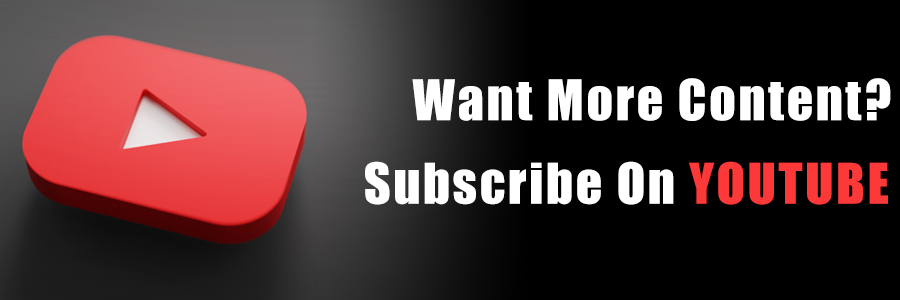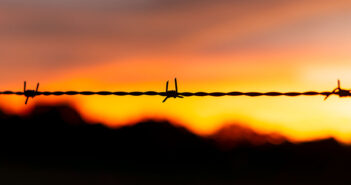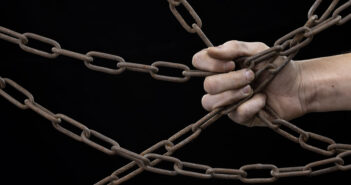Back in August 2021, I wrote about “gay narcissism” for the first time.
It’s a topic that’s been on my mind a lot over the past few years—especially the complexity of it and the ingredients that go into its creation. There’s a lot of nuance in those words, and it’s a concept to handle deftly. That’s what’s been bothering me lately. How sensitive have I been to the issue, and what else is at play?
There’s no regret in anything I’ve previously written. There’s nothing I’d really change. I still actively give my toxic ex the epithet of the Gay Narcissist. I still refer to my years with him as the Gay Narcissistic Relationship. That won’t be changing. I even have text replacements set on my computer for those words.
However, there’s certainly room for expanding the idea and offering greater nuance.
When people come out of toxic relationships, words like “narcissism” and “narcissist” and “narcissistic” turn into sacred mantras. There’s finally clarity to the confusion. It’s not uncommon for those targeted by bad actors and unsavory characters to say any and all iterations of “narcissism” so much that we sound like toddlers repeating our first words over and over again.
I use “we” because I was very much like that when the Gay Narcissistic Relationship ended and I went through the Final Narcissistic Discard. I couldn’t stop talking about all things narcissism. I didn’t want to talk about the other stuff—stuff like the hurt and insecurity and rage that ran much deeper than my years with the Gay Narcissist.
Preoccupation with “narcissism” eventually faded.
Now, I really only use it here in these writings. Some of it is for cynical SEO purposes, I admit. But the word also provides an important framework to the broader concepts I am interested in and care about—toxic romance, dysfunctional relationships, disturbed behavior, etc.
And chief among all that stuff is how it manifests among gay men. Because it certainly does, and in frightening regularity.
But as I said, there’s some important nuance to apply.
Time To Mingle?
Full disclosure: this all came up in my head recently because I’ve been experiencing some especially intense dark feelings at the time of this writing.
Loneliness, isolation, limerence, fear of the unknown, and a general despondency that the best days have passed and there’s nothing worth looking forward to—it’s all been rattling around in my head. In some ways, I haven’t felt like this since my romantic relationship with the Gay Narcissist ended years ago.
To try and feel better, I landed in the Ask Gay Bros subreddit and browsed some of the more forlorn posts. Eventually someone recommended the 2017 feature story by Michael Hobbes, “Together Alone: The Epidemic of Gay Loneliness.”
It’s unsettling how, after eight years, everything in the article still rings true.
One section stood out to me during my first of three read-throughs. After Hobbes exhaustively explained the isolating nature of homosexuality, from childhood on up, he took a whack at one of the most painful truths out there. As we age, gay men seek out other gay men for community and understanding. The hope is in finding connection, friendship, romance, and love. But oftentimes we find the opposite.
To quote:
“Gay men in particular are just not very nice to each other,” says John, the adventure tour guide.
“In pop culture, drag queens are known for their takedowns and it’s all ha ha ha. But that meanness is almost pathological. All of us were deeply confused or lying to ourselves for a good chunk of our adolescence.
But it’s not comfortable for us to show that to other people. So we show other people what the world shows us, which is nastiness.”
I feel comfortable with the generalization that all gay men carry the same traumas of fear, isolation, and loneliness to some degree. A gay childhood is one of mimicry and deception. We hide, obscure, and avoid—both from others and ourselves.
It’s often been believed that coming out of the closet is the cure.
But how often is coming out a celebration? From where I sit, it’s typically an act of desperation. It’s an act of pulling a psychological release valve. It’s an act taken under duress.
Hobbes pointed out that the lives of gay men do not always improve after coming out. They can oftentimes get worse. Now were out. It’s time to mingle. Let’s make friends. Hopefully there’s some romance and love around the corner.
How tragic it is when we meet so many fellow damaged souls.
Bullies And Doormats
As one of Hobbes’ sources (Paul) said, he was “re-traumatized” when he found his way into the gay community after coming out.
You go in hopeful, excited, and nervous. You come out jaded, depressed, and lonely. “You realize that everyone else here has baggage, too. The bullied kids of our youth grew up and became the bullies themselves,” Paul said in the 2017 article.
How that bagged manifests is where “gay narcissism” shows itself.
I’ve unfortunately witnessed far more troubled and fraught relationships among gay men than healthy and stable ones. That includes my own, others I’ve observed interpersonally, and even more from research. And I typically see two types of guys in romantic relationships: bullies and doormats.
The bullies are obvious. These are the gay men who are entitled, brash, and arrogant. Oftentimes they’ve accumulated a lot of social-sexual capital within the gay community, and that’s brought into the relationship. You should feel lucky to have me, is a typical sentiment. And the implied followup to that is… If you don’t watch yourself, you very well might loose it. These gay man are inherently narcissistic in their behavior. It goes with the territory.
And the doormats are worried about loosing it. We can be the obsessive pick-me fanboys of the bullies (me), or they can be soft, sweet, and a little awkward in their approach. They don’t know what’s going on until they’re swept up, in it, and then trying to maintain the whole thing. But we will usually fight to the death to maintain the attention of the bullies.
We do what we can to hold our relationships together because we finally found someone we love. Hopefully he’s actually the one. We tremble at the thought of loosing it. But we’re not blind to the entitled, brash, arrogant, and narcissistic behavior of the bullies, either. Bitterness stews. Resentment festers. And we start lashing out, either overtly or passive-aggressively.
I say “we” because I’m very much the doormat in my relationships.
I almost always fall hard for bullies.
Fraught Inner Landscapes
In my recollections of the Gay Narcissistic Relationship, the Gay Narcissist very much falls into the bully category (surprise, surprise).
He prided himself on his masculinity and his ability to pass within straight society. He flinched if he thought the macho veneer ever chipped a little. He used it as capital to both keep me in line and also pull in fresh validation from other men.
I piggybacked off his masculinity, taking it unto myself by proxy. Which led to devastation when the Final Narcissistic Discard happened and the Gay Narcissist replaced me with the New Supply. I grew too attached to his perceived pros and fell hard when I lost them.
All of this is about external validation, though.
Some validation from the outside is fine and good. But when it’s the only source of validation we have because of a deep inner shame that’s been festering since early childhood… well, it’s a rough road to understanding ourselves and finding others of like mind.
Returning to Michael Hobbes and his 2017 article, he discussed the “Best Little Boy in the Whole World Hypothesis” as it pertains to gay men.
As Hobbes writes:
As kids, growing up in the closet makes us more likely to concentrate our self-worth into whatever the outside world wants us to be—good at sports, good at school, whatever.
As adults, the social norms in our own community pressure us to concentrate our self-worth even further—into our looks, our masculinity, our sexual performance.
But then, even if we manage to compete there, even if we attain whatever masc-dom-top ideal we’re looking for, all we’ve really done is condition ourselves to be devastated when we inevitably lose it.
Off of this, Hobbes quotes the fantastic Alan Downs, author of The Velvet Rage, where he mentions the pitfalls of relying on external validation in order to sooth our fraught inner landscapes as gay men.
“We wake up at 40, exhausted, and we wonder, Is that all there is? And then the depression comes.”




